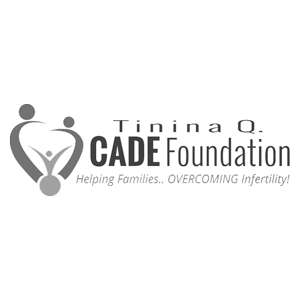代理出産FAQ
-
What is a surrogate?
A surrogate is a woman who agrees to carry a child (or children) for another person or couple, known as the intended parents.
-
What is the difference between a traditional surrogate and a gestational carrier?
A gestational carrier (the most common type) is not genetically related to the baby. The embryo is created using the intended mother’s or egg donor’s eggs and the intended father’s or sperm donor’s sperm, then transferred to the surrogate’s uterus. Every journey we facilitate is through gestational surrogacy.
A traditional surrogate uses her own egg and is biologically related to the child she carries. This process is much less common. -
Why should I go through an agency instead of working independently?
An agency like The Genesis Group guides you through the entire process from start to finish. We handle legal, medical, and financial details, coordinate appointments, ensure timely reimbursements, and support clear communication between all parties so you can focus on a healthy, positive pregnancy. A reputable agency can leverage their expertise to handle any unforeseen situations, act as the support system between both you and your intended family, and set you up for a successful journey.
-
Why should I become a surrogate?
Surrogacy provides the gift of parenthood to loving and deserving individuals who cannot carry a pregnancy themselves. It’s both emotionally fulfilling and financially rewarding, offering a chance to make a lasting difference in someone’s life as well as your own. Our staff of former surrogates and intended parents are happy to share more about their experiences if interested.
-
Why do intended parents need a surrogate’s help?
There are many reasons. Some intended mothers may not be able to conceive or carry a pregnancy due to medical conditions, previous miscarriages, or lack of a functioning uterus. Others may be single men or same-sex male couples who want to grow their families.
-
Can I be a surrogate if I’ve had my tubes tied?
Absolutely! Since the embryo is transferred directly into your uterus using IVF (in vitro fertilization), your fallopian tubes are not involved.
-
Can I become a surrogate if I’ve never given birth?
No. All Surrogates must have given birth to at least one healthy child through a successful, full term pregnancy. Before you can be approved to carry for someone else, we must know that you can carry a safe pregnancy.
-
May I become a surrogate if I am single or unmarried?
Yes. You do not need to be married to qualify for surrogacy. You should have a support system around you to ensure a fulfilling journey, whether that be friends or family.
-
Can I still be a surrogate if I don’t have medical insurance?
Yes. The Genesis Group can help you apply for a policy that covers surrogacy, and we can assist with start-up fees and monthly premiums until you are matched. Once matched with a family, the intended parent(s) will take over all costs associated with your policy.
-
What are the health risks of being a surrogate?
The health risks are generally similar to those of any normal pregnancy, but we always recommend discussing your individual medical history with your OB/GYN. Safe and ethical journeys are at the core of our mission, so all surrogates undergo psychological and medical screening to ensure they can have as safe a pregnancy as possible.
-
When was The Genesis Group established?
We were founded in 2003, making us one of the most experienced and trusted surrogacy agencies in the United States.
-
How large is your team?
We are a medium-sized agency with over 20 employees, including a dedicated surrogacy team, donor coordinators, and administrative staff.
-
What makes The Genesis Group different?
With over two decades of experience, we blend professionalism with loving care. Our focus is on ethical practices, transparency, and individualized care to facilitate safe, supported journeys for surrogates and intended parents alike.
-
Do you work with international intended parents?
Yes. Around 25% of our intended parents come from countries such as Australia, the U.K., and across Asia.
-
How many intended parent cases do you manage at a time?
We typically manage upwards of 90 active cases, with an average of 3-5 births each month. Every journey receives personalized support through your own dedicated case manager.
-
What is the application process like from start to embryo transfer?
Here’s what to expect:
Preliminary screening: Consultation, background checks, BMI review, psychological evaluation, and home visit. These steps ensure you will have a high chance of approval by our agency and an IVF clinic.
Profile Building: You will create a profile alongside our team complete with health information, personality questions, requested compensation, and journey preferences.
Matching: Your profile is shared with intended parents who align with your preferences.
Medical screening: Conducted at your intended parents’ IVF clinic after a match, they will review your health history and current benchmarks to approve you for a safe journey.
Legal contracts: Both parties review and sign legal agreements.
IVF & transfer: Once cleared, you begin fertility medications and follow the transfer calendar prescribed by your IVF clinic. -
代理母になるには、どのくらいの期間がかかりますか?
Once your profile and records are complete, matching can take anywhere from a few days to six weeks. The medical and legal process takes an additional 1-2 months. After clearance, your IVF cycle typically lasts 3-4 weeks before embryo transfer.
-
When does medical screening take place?
After matching with intended parents and before signing your legal contract.
-
What kind of screening or tests will I need?
You will undergo an ultrasound, bloodwork, and a psychological evaluation.
-
配偶者やパートナーは検査を受けるように言われますか?
Yes. Partners are required to complete blood tests for STD and drug screening, usually done locally.
-
How long does the embryo transfer cycle take?
If using fresh eggs, a cycle typically 6-8 weeks, depending on the egg donor’s or intended mother’s cycle and your fertility specialist’s protocol. A cycle can sometimes be shorter if the intended family is using frozen embryos.
-
What happens during embryo transfer?
The embryo is gently placed into your uterus using a thin catheter under ultrasound guidance. The process is quick and generally painless, though mild discomfort is possible.
-
何回注射をすればいいのでしょうか?
Protocols vary, but most involve:
Around 3 weeks of daily Lupron injections, into the abdomen
Around 3 months of twice-weekly estradiol injections, into the buttocks
Around 3 months of daily progesterone injections, into the buttocks
All instructions will be explained and demonstrated before starting medication. -
Once I’m pregnant, where will I receive medical care and deliver the baby?
You can typically see your current OB doctor if they are in-network with the insurance covering your pregnancy. If needed, we’ll recommend another provider. At the time of delivery, you will deliver at a local hospital approved by your insurance. This is often the same one where you delivered your own children.
-
How does The Genesis Group handle matching?
Intended parents navigate our database or are recommended profiles of qualified surrogates based on their own journey preferences. If they express interest and approve your benefits package, we then share their profile with you. If both parties agree, we schedule a virtual “match meeting” alongside a case manager to facilitate.
-
Do I get to meet intended parents before committing?
Absolutely. You’ll meet via a guided Zoom or in-person meeting to ensure compatibility before proceeding.
-
Do I get to choose the Intended Parents I work with?
Yes. Both parties review each other’s profiles and only move forward if it’s a mutual fit. The final decision to match is in both of your hands.
-
When can I communicate directly with my intended parents?
After legal clearance, you can communicate directly and freely.
-
Can intended parents pursue multiple surrogates at once?
Yes, under specific conditions. They must disclose this to all parties and allow at least a three-month gap between embryo transfers.
-
Once the baby is born, will I have contact with the parents?
This depends entirely on mutual preference. Some surrogates maintain lifelong friendships, while others choose no contact after delivery. Expectations should be discussed before matching and included in your journey preferences.
-
代理母の謝礼金はいくらですか?
Compensation can range from $35,000-$75,000 and up, depending on experience, location, and other factors.
For example, repeat surrogates can often receive higher compensation due to proven success, and California-based surrogates can receive higher compensation due to their proximity to intended parents and reputable IVF clinics.
Ultimately, you set your desired compensation at a rate you are comfortable and happy with. We are happy to provide guidance if needed. -
Do first-time surrogates set their own compensation too?
Yes. Even first-time surrogates can indicate their preferred compensation, though higher requests may affect your chances of matching quickly.
-
What kind of additional compensation or benefits packages does The Genesis Group offer?
We provide a comprehensive benefits package including base pay and additional allowances for milestones, medical procedures, and experiences. We offer assistance such as housekeeping, acupuncture, childcare, etc. to provide full support for your own life and wellbeing alongside your journey.
-
Can I see a sample compensation package?
Yes. We provide all approved applicants with a sample benefits breakdown outlining inclusions.
-
このプロセスには何か費用がかかるのでしょうか?
No. All standard costs including travel, medical procedures, insurance, and legal fees are covered by the Intended Parents. If additional personal testing is needed unrelated to surrogacy clearance, you may be responsible for those specific costs.
-
What expenses are covered?
All costs related to the process and pregnancy are covered. This includes travel, childcare, lost wages, insurance, and housekeeping allowances. Details are outlined in your legal contract.
-
How is the surrogacy fee disbursed?
Base compensation is paid in monthly installments following heartbeat confirmation, with any remaining balance paid within 10 days of delivery.
-
What kind of emotional and community support do you offer?
You will receive ongoing support through monthly therapy sessions, access to a private surrogate Facebook group, and consistent communication with your case manager.
-
Will I have a dedicated case manager?
Yes. Each surrogate is paired with a case manager overseeing no more than 30 cases at once to ensure personalized attention.
-
What if I need help after hours?
Each case manager is available by work cell for urgent after-hours concerns.
-
How much contact will I have with The Genesis Group?
You will have regular communication throughout your journey, from application to postpartum support. Our team is always available for guidance and reassurance.
-
Can I choose my own lawyer?
Yes. You may select your own AAARTA-certified attorney (Academy of Adoption & Assisted Reproduction Attorney), or we can refer trusted professionals experienced in surrogacy law.
-
Do you use third-party escrow accounts?
Yes. Intended parents choose from reputable escrow firms such as SeedTrust or Clarity. We do not hold funds in-house, nor do we allow unverified or newly established escrow companies to ensure your protection.
-
Will my or my spouse’s name be on the birth certificate?
In California and many other states, a pre-birth order gives intended parents full legal rights to the child. Their names appear on the birth certificate, not the surrogate’s. Laws may vary by state, but our team and your attorney are expertly trained to coordinate the pre- and post-birth process.
-
Will I have any genetic relation to the baby?
No. Gestational surrogates have no genetic link to the child, since the embryo comes from the intended parents or donors.
Surrogacy Basics
About The Genesis Group
The Surrogacy Process
Matching With Intended Parents
Compensation & Financial Questions
Support & Care
Legal & Ethical Safeguards

誰かの夢を叶えることができる
もしあなたが代理出産で子育ての夢を叶えるお手伝いをしたいとお考えでしたら、ジェネシスはあなたのお手伝いをさせていただきます。






